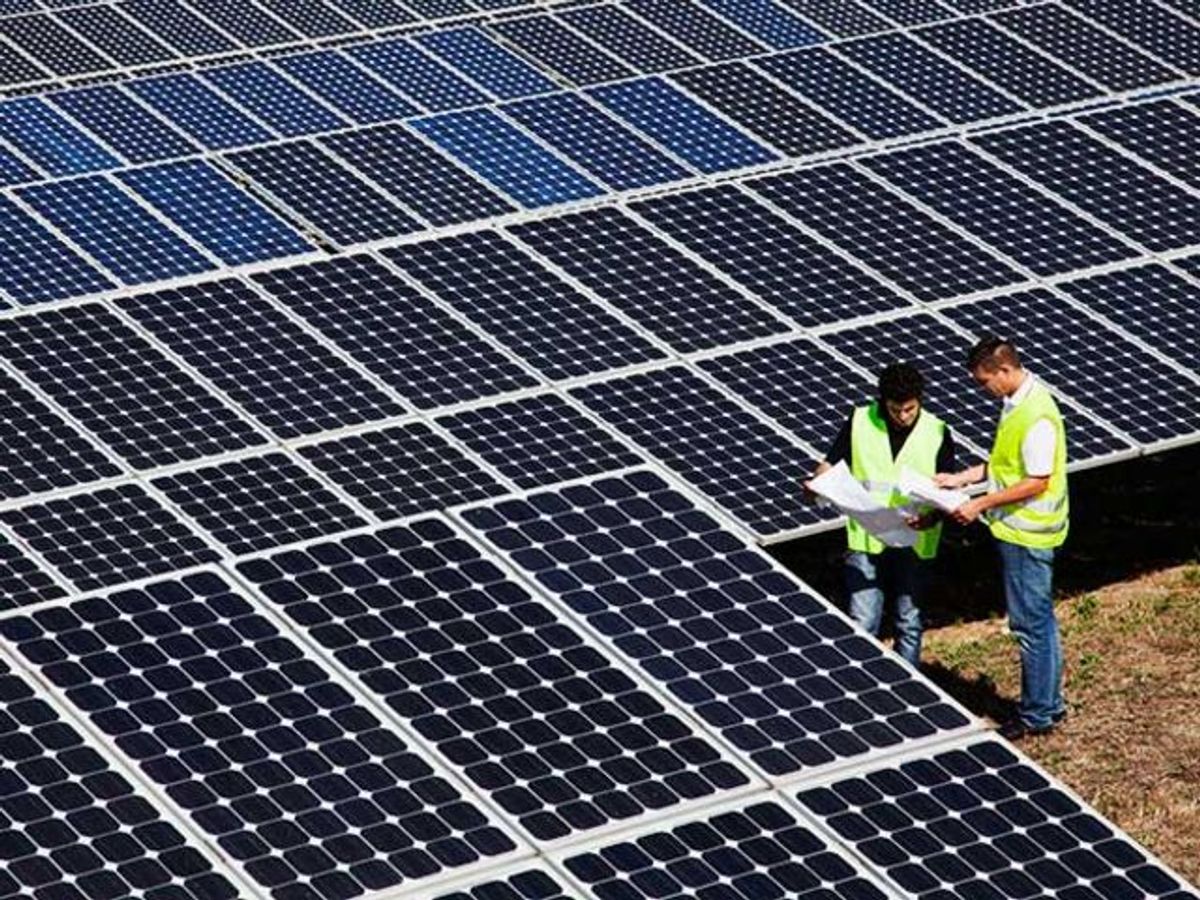For jobs creation, the new Trump administration would do well to take a fresh look at clean energy rather than focusing only on fossil fuels. The solar power sector employed twice as many workers in 2016 than power generation from coal, gas and oil combined, according to a U.S. Department of Energy report on employment in energy and energy efficiency.
The solar workforce was about 374,000-strong, making up around 43% of the total employees in the power generation field. Wind power employed 101,738 workers, an increase of 25%. Coal, gas and oil-fired generation together accounted for just over 187,000 jobs, or 22% of the workforce.
A majority of fossil fuel energy jobs are in mining and extraction rather than power generation, but these jobs are declining. Coal mining reached its peak employment in 2012, and now employs around 53,000. Oil and gas extraction jobs reached a peak in 2014 with 541,000 jobs, and in mid-2016 had 388,000 workers.
According to a report from the Environmental Defense Fund (EDF) solar jobs are growing at a rate 12 times faster than the rest of the U.S. economy. Plus they are “generating more jobs per dollar invested–more than double the jobs created from investing in fossil fuels.” What’s more, many of these renewable energy and energy efficiency jobs are local, pay well, and can be found in any state, says Liz Delaney, a program director at EDF.
Jobs in renewables and energy efficiency are also growing, unlike those in fossil fuels. The DOE report says that wind and solar jobs increased by 32% and 25% respectively between 2015–2016. The energy efficiency sector is projected to have the highest growth this year at 9%, with employers expecting to hire 198,000 more people in 2017.
“The main factor behind this growth is the economic drivers,” Delaney says. She points to dropping wind and solar prices, and the fact that businesses are recognizing that energy-efficiency measures are a cost-effective way to save money. “Whether or not you’re an environmentalist this just makes good business ense,” she says.
President Trump’s plans to roll back environmental regulations, advance oil pipelines, and open up federal land for drilling and mining might add jobs in the energy industry. But in the end, market forces will play a big role in whether he can deliver on the promise of bringing back fossil fuel energy jobs. Reviving coal sector jobs will be especially hard.
The DOE report says that most of the 26 GW of utility-scale power generation capacity that will be added in the next few years will be solar (9.5GW), natural gas (8GW), and wind (6.8GW).
Coal-fired power generation in the U.S. has declined by 53% between 2006 and 2016, the DOE report says. That’s mainly because of cheap and cleaner natural gas, the share of which grew by 33% in that decade (solar generation grew 5000%). Fracking and newer drilling techniques have led to a big enough surge in natural gas production that supply now exceeds demand. The costs of solar and wind also continue to plummet.
Even if President Trump can delay coal power plant retirement, the job payoff will be small, according to the Christian Science Monitor. The coal industry might have better long-term success if it was made cleaner using carbon capture and storage technologies. From that CSM article:
“Any attempt to bring coal back that doesn’t recognize the concerns that others have isn’t going to work,” says Richard Reavey, vice president of public affairs for Cloud Peak Energy, a Wyoming-based coal company.
Germany’s switch to renewables as part of the country’s bold plan to reduce greenhouse gas emissions by 40% by 2020 is expected, in the long run, to save the country 149 billion euros while creating 430,000 additional jobs.
In the US, lawmakers on both sides are pushing for renewables because they see the economic value. The new administration should take note: renewables and energy efficiency are a good business move.
“The genie is out of the bottle,” Delaney says. “The economic case is very strong for renewable energy. I believe it will continue with or without federal support. It would be tough for the new administration to stop this from happening but they can certainly slow it down.”
Prachi Patel is a freelance journalist based in Pittsburgh. She writes about energy, biotechnology, materials science, nanotechnology, and computing.



